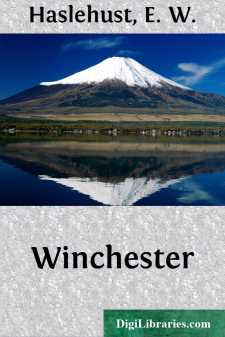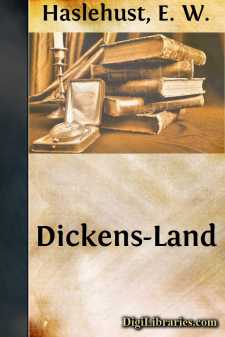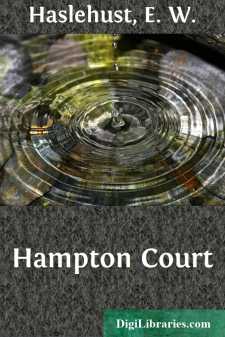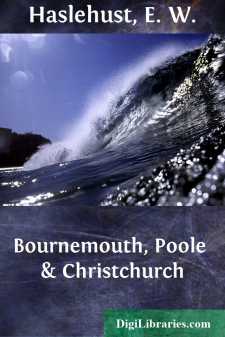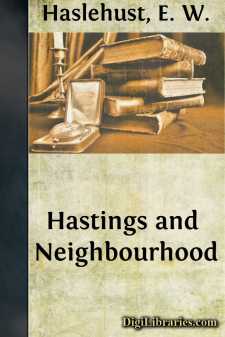Categories
- Antiques & Collectibles 13
- Architecture 36
- Art 48
- Bibles 22
- Biography & Autobiography 813
- Body, Mind & Spirit 142
- Business & Economics 28
- Children's Books 17
- Children's Fiction 14
- Computers 4
- Cooking 94
- Crafts & Hobbies 4
- Drama 346
- Education 46
- Family & Relationships 57
- Fiction 11829
- Games 19
- Gardening 17
- Health & Fitness 34
- History 1377
- House & Home 1
- Humor 147
- Juvenile Fiction 1873
- Juvenile Nonfiction 202
- Language Arts & Disciplines 88
- Law 16
- Literary Collections 686
- Literary Criticism 179
- Mathematics 13
- Medical 41
- Music 40
- Nature 179
- Non-Classifiable 1768
- Performing Arts 7
- Periodicals 1453
- Philosophy 64
- Photography 2
- Poetry 896
- Political Science 203
- Psychology 42
- Reference 154
- Religion 513
- Science 126
- Self-Help 84
- Social Science 81
- Sports & Recreation 34
- Study Aids 3
- Technology & Engineering 59
- Transportation 23
- Travel 463
- True Crime 29
The Cornish Riviera
by: E. W. Haslehust
Description:
Excerpt
PLYMOUTH TO LAND'S END
"By Tre, Pol, and Pen,You may know the Cornishmen."The majority of our English counties possess some special feature, some particular attraction which acts as a lodestone for tourists, in the form of a stately cathedral, striking physical beauty, or a wealth of historical or literary associations. There are large districts of rural England that would have remained practically unknown to the multitude had it not been for their possession of some superb architectural creation, or for the fame bestowed upon the district by the makers of literature and art. The Bard of Avon was perhaps the unconscious pioneer in the way of providing his native town and county with a valuable asset of this kind. The novels of Scott drew thousands of his readers to the North Country, and those of R. D. Blackmore did the same for the scenes so graphically depicted in Lorna Doone; while Thomas Hardy is probably responsible for half the number of tourists who visit Dorset.
Cornwall, on the contrary, is unique, in that, despite its wealth of Celtic saints, crosses, and holy wells, it does not possess any overwhelming attractions in the way of physical beauty (the coast line excepted), literary associations, beautiful and fashionable spas, or mediæval cathedrals.
History, legends, folklore, and traditions it has in abundance, while probably no portion of south-west England is so rich in memorials of the Celtic era. At the same time one can quite understand how it was that, until comparatively recent years, the Duchy land was visited by few tourists, as we count them to-day; and why the natives should think and speak of England as a distant, and indeed a foreign, country. Certain is it that less than a quarter of a century ago those who crossed the Tamar and journeyed westward into the sparsely populated Cornish towns and villages, were hailed as "visitors from England".
Bounded on the north and south by the sea, cut off on the east by the Tamar, the delectable Duchy was a singularly isolated strip of land until the magic connecting link was forged by Brunel. Indeed it is not too much to say that Cornwall owes its present favourable position as a health resort almost entirely to the genius of Brunel and the enterprise of the Great Western Railway.
The lateness of the railway development of Cornwall is somewhat remarkable when we remember that the county contained, in the picturesque Bodmin and Wadebridge Railway, the third line opened for passenger traffic in the kingdom. A quarter of a century later Plymouth was connected with the outer world, but for long after the historic ports and towns of the southern seaboard had been gradually linked up, the splendid isolation of the northern coast remained until comparatively recent years. It is but a short time ago that the only way of reaching Newquay was by means of a single mineral line that ran from Par Junction. Contrast this with the present day, when there is a choice of no less than five trains by which passengers can travel from Paddington to Newquay, to say nothing of the morning coach which meets the South Western train from Waterloo at Wadebridge....




